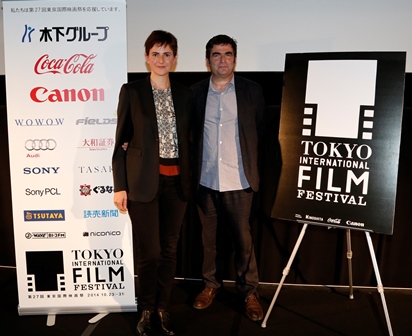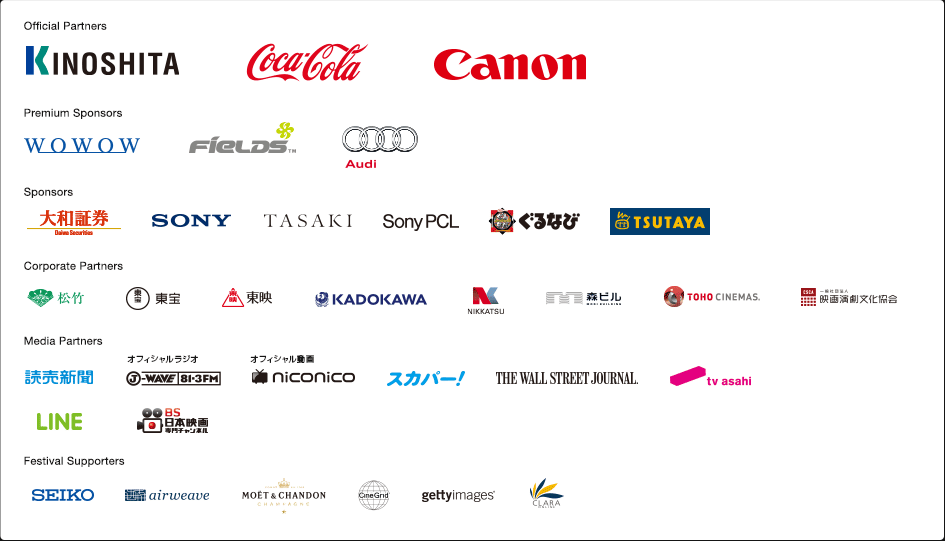
A Radical Filmmaker Looks at 60 – The Days Come
Filmmaker Romain Goupil has had a long history in radical leftist politics. When he was 14 he was on the front lines of demonstrations and action during the heady days of May 1968 in Paris. He’s continued on a long career making films infused with his strong political stance. His new film, The Days Come continues in this vein, but this time with a heavy dose of self-critique and a sly humor. The film is a self-reflexive story about Romain (playing a form of himself) a filmmaker, trying to pitch a crazy film idea about a filmmaker, who every time he shoots, a disaster happens. His meeting with his producer are interspersed with musings on politics, his “takeover” of his coop apartment’s board, flirtations and affairs with women in his life, pianos falling out of the sky and most importantly, his relationship with his wife and kids – who play themselves in the film. Throughout this fanciful fiction, home footage of his kids growing up, images from Sarejevo, his wife’s home town and other scenes create a meta-cinematic spectacle that beggars the questions of what’s real, what’s fictional, and what may be both.
His wife, Sanda, explained some of Romain’s strategies. “With Romain, from the very beginning when we started knowing each other, he was always shooting things with his camera. Whether we went on a trip or a vacation or even after the children were born. He’s always shooting. As a family we’re all used to being filmed. But when the children got older, maybe they reached an age where they don’t want to be filmed. But for this movie there was a screenplay. Romain wrote a script based on what happened in his life and the kids are actually acting. And actually they enjoyed doing that.”
Romain added, “An example of an imagined sequence. I filmed my two little children and Sanda, completely nude near a river in Bretagne. The thought of using this in a film was impossible. But later a fiction developed. As with Sanda lying naked on a bed talking about things philosophical and about Achilles tendons, with a very heavy accent. This is all part of the mise en scene. But my children were totally against showing those two sequence, because when the film is released, their friends and their friends’ parents are going to see mom naked and them too. It’s going to be a catastrophe. But anyway, any real, non-fiction footage is only 10 minutes of the 90 minute film.”
He added a bit more. “I’ve been shooting my friends and family for a long time. I started with 8mm and 16mm. Much earlier when I was shooting there was no video. I was born in that age where there was no video. So my family is very much used to being filmed. So they don’t really care. But sometimes they get tired of it. So the documentary footage I shot, I used in the fiction. What parts I used depended on the film. For example, with the Sarajevo footage, not the first time, but each time I shot my family, I used the kids. And I used the footage of my children in the fiction. It was not my intention to make it autobiographical. Maybe I can say, it’s my style.
And about those pianos that fall from the sky whenever Romain walks to his apartment in the film? Romain had a very direct and personal explanation that added heart to what seemed absurd.
He said, “In life there is a risk that a piano may fall from the sky. As well, we take a risk in choosing friends – and also friends choosing us as friends. So we choose each other and then we try to function together. And in that, there’s risk. A piano could fall from the sky. I met Sanda in that way.
He continued, “This is my second visit to Japan. There was a very famous movie critic here, who was also a friend of mine – Yoichi Umemoto. We met when Mourir à 30 ans, my first feature film came out. And also we met again with my other film, Les mains en l’air . We had dinner together. We laughed together. We talked a lot. I remembered it very well and I wanted to see him again this time. But his wife told me that he passed away. It was very sad news. So I’d like to send an homage to him. I knew that the last time I saw him he was sick. The piano falls here as well.”
























